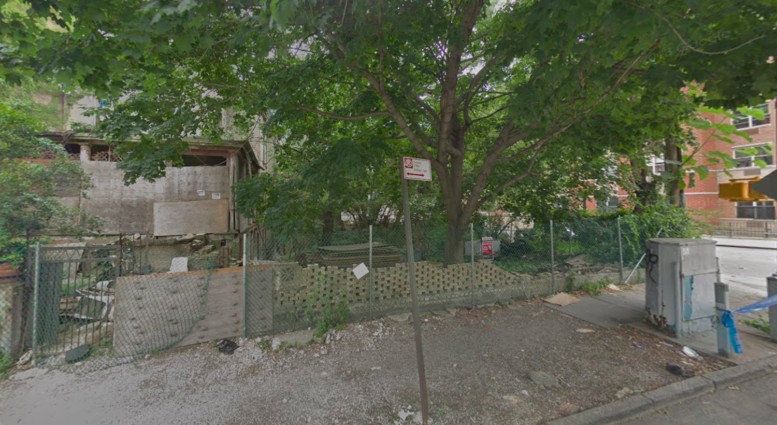“While safety net health care providers are tackling public health crises and helping underserved communities, CVS is robbing them out of millions of desperately needed funds that could improve patient care,” said Attorney General James. “CVS’s actions are a clear example of a large corporation using its clout and power to take advantage of institutions and vulnerable New Yorkers, but my office will not allow it. We are taking action to stop CVS’s harmful practices and recoup critical funds to improve health care for our communities. When powerful corporations undermine the health and wellbeing of vulnerable communities in New York, they can expect to hear from my office.”
For years, CVS did not allow New York safety net hospitals and clinics to use the company of their choice to obtain subsidies on prescriptions filled at CVS pharmacies through the 340B federal program. This program allows safety net hospitals and clinics to purchase certain drugs at a discount from pharmaceutical companies and use the savings for patient care. Safety net health care providers in New York obtain substantial savings from the 340B program, which are critical to their viability and to the health of the surrounding community. To realize the benefits of the 340B program, safety net hospitals and clinics must contract with the pharmacies that are used by their patients. Under the CVS scheme, thousands of safety net health care providers across the state were only allowed to use Wellpartner to process claims filled at CVS retail and specialty pharmacies, forcing them to incur millions of dollars in additional costs to hire and train staff and change their data systems to align with Wellpartner’s system.
The lawsuit alleges that New York patients were the ultimate victims of CVS’s unfair practice, which siphoned off critical federal funding from safety net health care providers that could have used the funds to improve access to health care for the neediest New Yorkers — including New Yorkers without health insurance or an ability to pay for health care.
As of 2021, there were more than 4,440 safety net health care providers enrolled in the 340B program across New York, which include Federally Qualified Health Centers (FQHCs), critical access hospitals, Ryan White HIV/AIDS Program grantees, rural referral centers, sole community hospitals, black lung clinics, community health centers, family planning clinics, and tuberculosis clinics. These facilities primarily treat low-income patients and rely on 340B savings to fund patient care services to underserved and vulnerable populations.
Safety net health care providers bear full legal responsibility for keeping records and may only collect 340B revenues on certain prescriptions, including patient prescriptions for medications used to treat HIV/AIDS and hepatitis C. Most safety net providers contract with a third-party administrator, or TPA, to administer their 340B programs. The TPAs confirm eligibility for each transaction and keep detailed records, as required by the federal 340B program rules.
In 2017, CVS acquired a TPA, Wellpartner, and began requiring New York hospitals to use Wellpartner rather than another TPA. The Office of the Attorney General’s (OAG) investigation found CVS pharmacies did not contract with hospitals that do not use Wellpartner as their TPA, a violation of New York’s antitrust laws. Since there was no contract, the hospitals and clinics were unable to collect 340B funds that were rightfully theirs. Hospitals and clinics had little choice — they either had to go along with CVS’s self-serving scheme, or simply forgo the benefits to which they were otherwise entitled under the 340B program.
The OAG found that CVS’s plan was to leverage the strength of its retail pharmacy network in New York to force hospitals to use Wellpartner, rather than any other TPA. Many hospitals objected because they were already using other TPAs.
The lawsuit alleges that CVS’s actions undermined the goal of the 340B program and hurt the financial condition of safety net health care providers. CVS required health care providers to transition at a significant cost to Wellpartner if the hospitals wanted to obtain 340B revenues from prescriptions filled at CVS pharmacies. Many hospitals switched to Wellpartner for all their 340B needs because it was not practical or economical to pay for two TPAs. In addition, CVS knew that the 340B program rules do not allow hospitals to steer patients away from certain pharmacies, so health care providers had no choice in practice — if they didn’t go along with CVS’s tying scheme, they simply couldn’t collect 340B savings for patients who choose to go to CVS pharmacies.
Through her lawsuit, Attorney General James is seeking injunctive relief, equitable monetary relief for the lost revenue and additional costs safety net health care providers were forced to incur, and civil penalties for CVS’s unfair and illegal business practices. In addition, Attorney General James seeks to require CVS to inform all safety net health care providers that they are not required to exclusively use Wellpartner.







